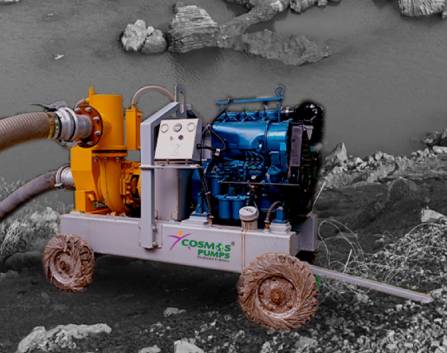Overcoming Subterranean Water Challenges
The Problem:
For the past four months, water has been clogging a 1.8km operational zone in Nigerian mines, with depths reaching up to 60 meters. This has caused severe flooding and seepage, blocking mining operations. Standard pumping methods have proven ineffective, requiring customized pumps to address water volume, depth, and seepage challenges.
Impact:
Water accumulation led to up to a 45% reduction in mining output due to downtime for dewatering and the inability to operate equipment in flooded areas. Mining machinery, conveyor systems, and electrical equipment were damaged by prolonged exposure to water, leading to costly repairs and replacements. Given these estimates, the total financial loss from seepage-related issues at the mine within 4 months was around 30 million US$. This is based on the combined costs of lost productivity, equipment maintenance, safety measures, and downtime.
Pumps Used:
3 Autoprime Pumps: CAP250HH
Objectives:

Efficient Water Removal

Minimize Downtime and Improve Operational Efficiency

Adaptation to Harsh Mining Environments:

Energy Efficiency and Cost-Effectiveness




